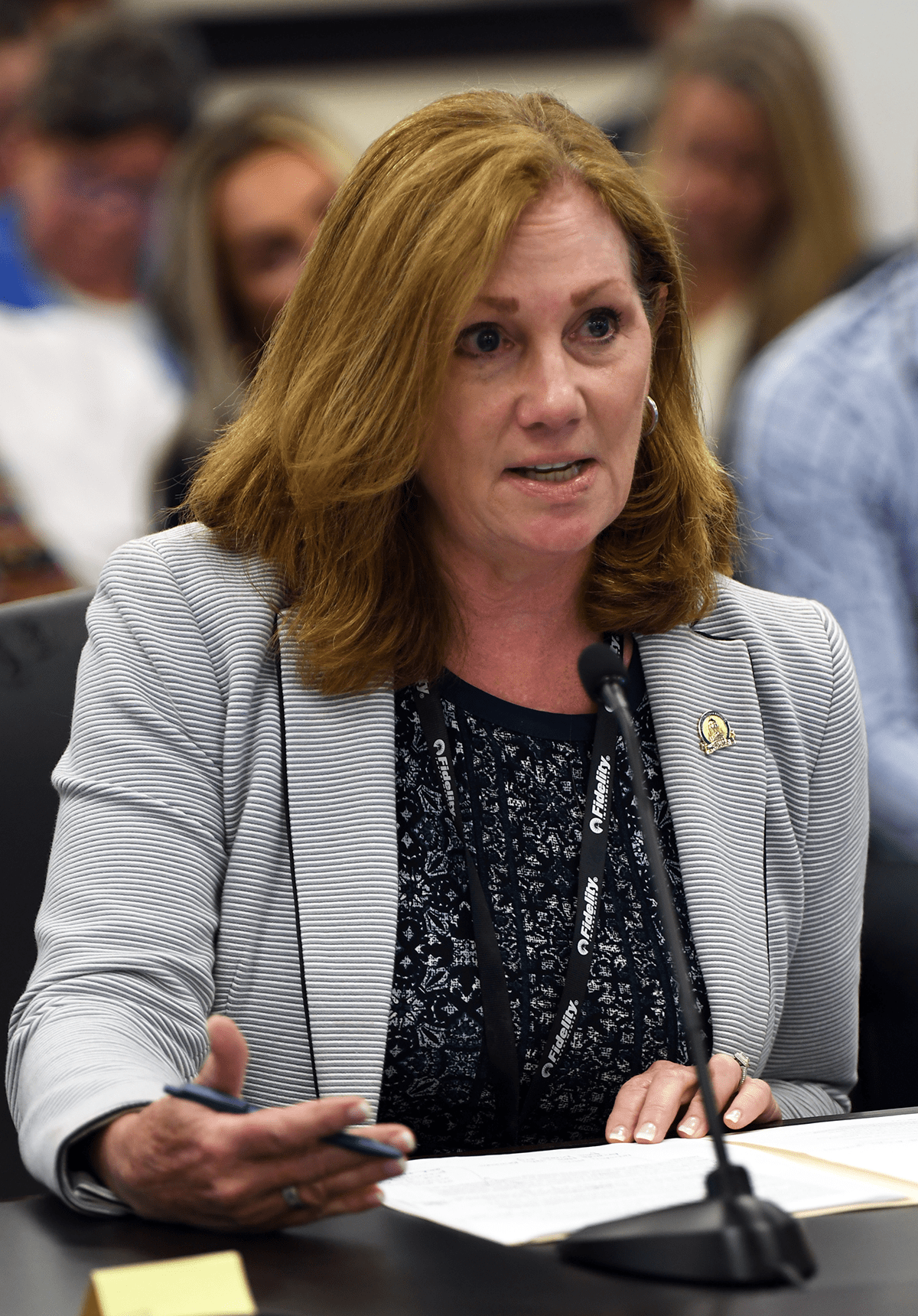Lawmakers discuss automating criminal record expungement process

by LRC Public Information Office
FRANKFORT — State law allows Kentuckians with low-level, non-violent convictions to have their criminal record expunged after meeting a few requirements, but it isn’t a simple process.
Rep. Kimberly Poore Moser, R-Taylor Mill, and other stakeholders spoke before the Interim Joint Committee on Judiciary on Thursday on how to make the expungement process easier.
Moser said the potential legislation would not change the current expungement statute. Earlier this year, Moser sponsored House Bill 588, but it did not pass before the end of the legislative session. She would have to refile the bill in 2024 in order for lawmakers to officially reconsider it.
“The objective of our corrections system as we all know is to assist individuals in their rehabilitation and to let them get on with their life to reintegrate into society,” Moser said. “This will simply expedite the process.”
Otherwise known as The Clean Slate Act, it would apply to Kentuckians who have completed their sentence and remain crime-free for five years. Once those requirements are met, the state would notify the individual they are eligible for expungement. This process would involve the Administrative Office of the Courts and Kentucky State Police. A judge would have to issue the final approval.
“Currently, less than 10% of individuals who are eligible for expungement actually petition the court for their expungement, so this would simplify the process,” Moser said.
Several Kentuckians who have petitioned for expungement testified before the committee on how it is difficult and costly. They also shared how having a criminal record for many years after completing their sentence made it harder to find a well-paying job, attend field trips with their kids, find housing and more.
Rep. Stephanie Dietz, R-Edgewood, said prior to the meeting she heard from some commonwealth attorneys with concerns about the bill’s impact on restitution and Marsy’s Law, which provides certain rights to crime victims.
Jesse Kelley, a campaign strategist with the Clean Slate Initiative, said Kentucky’s version of The Clean Slate Act would not impact restitution or Marsy’s Law. Individuals who have not met all of their sentencing requirements from the court, including completing their restitution payments, would not be eligible for expungement.
Sen. John Schickel, R-Union, said he did not support the first expungement law and he does not support this idea. He believes businesses have the right to know the criminal backgrounds of potential employees.
“Who are we to say that the government can hide that from us?” Schickel said. “I don’t understand that. We shouldn’t be making decisions for small businesses.”
Moser said she initially had the same concerns as Schickel, but she later changed her mind.
“I thought, who are we to question the courts and the punishment that has been given to these individuals for their mistakes? So it goes both ways,” she said, adding individuals who have completed their sentences should be able to “get on with their life.”
Sen. Karen Berg, D-Louisville, also spoke in favor of expediting the expungement process.
“I think this is an awesome, awesome, awesome idea,” she said.
The next Interim Joint Committee on Judiciary meeting is scheduled for 11 a.m. on Aug. 3. For more information, visit legislature.ky.gov.
Photo: Rep. Kimberly Poore Moser, R-Taylor Mill, testifying on the potential Clean Slate Act. (LRC PIO)
Recommended Posts

Kamala Harris needs a VP candidate. Could a governor fit the bill?
Fri, July 26, 2024
After cyber-attack on Jefferson County Clerk, Fayette counterpart discusses precautions
Fri, July 26, 2024
An eastern Kentucky animal shelter is swelling this summer
Fri, July 26, 2024